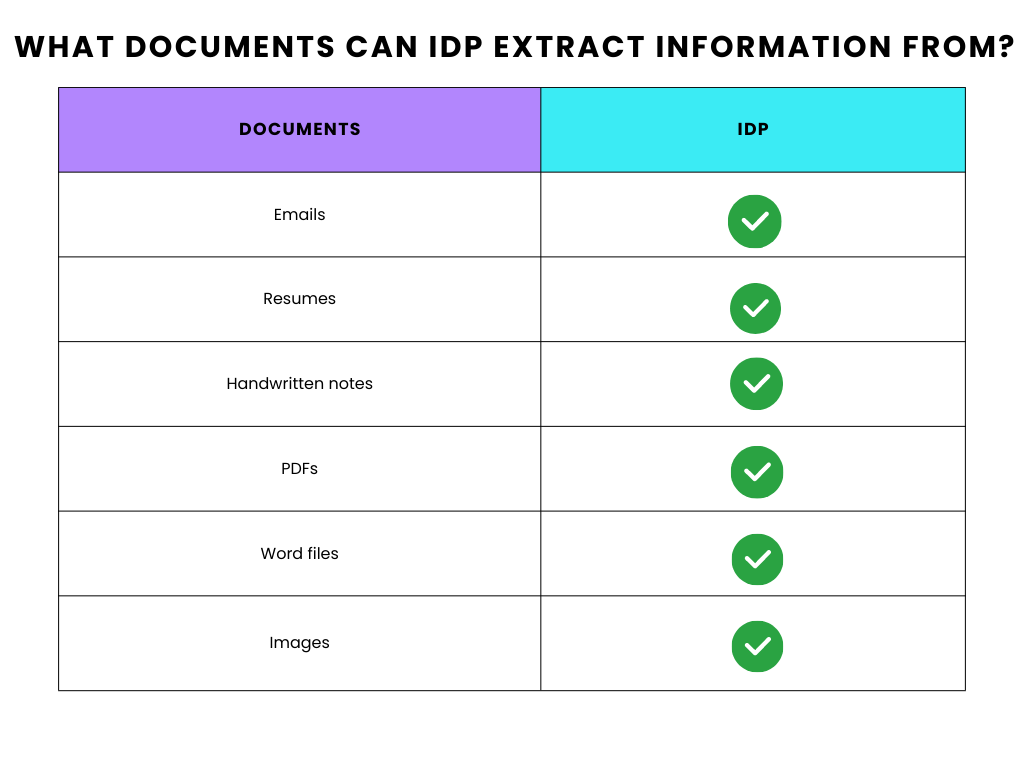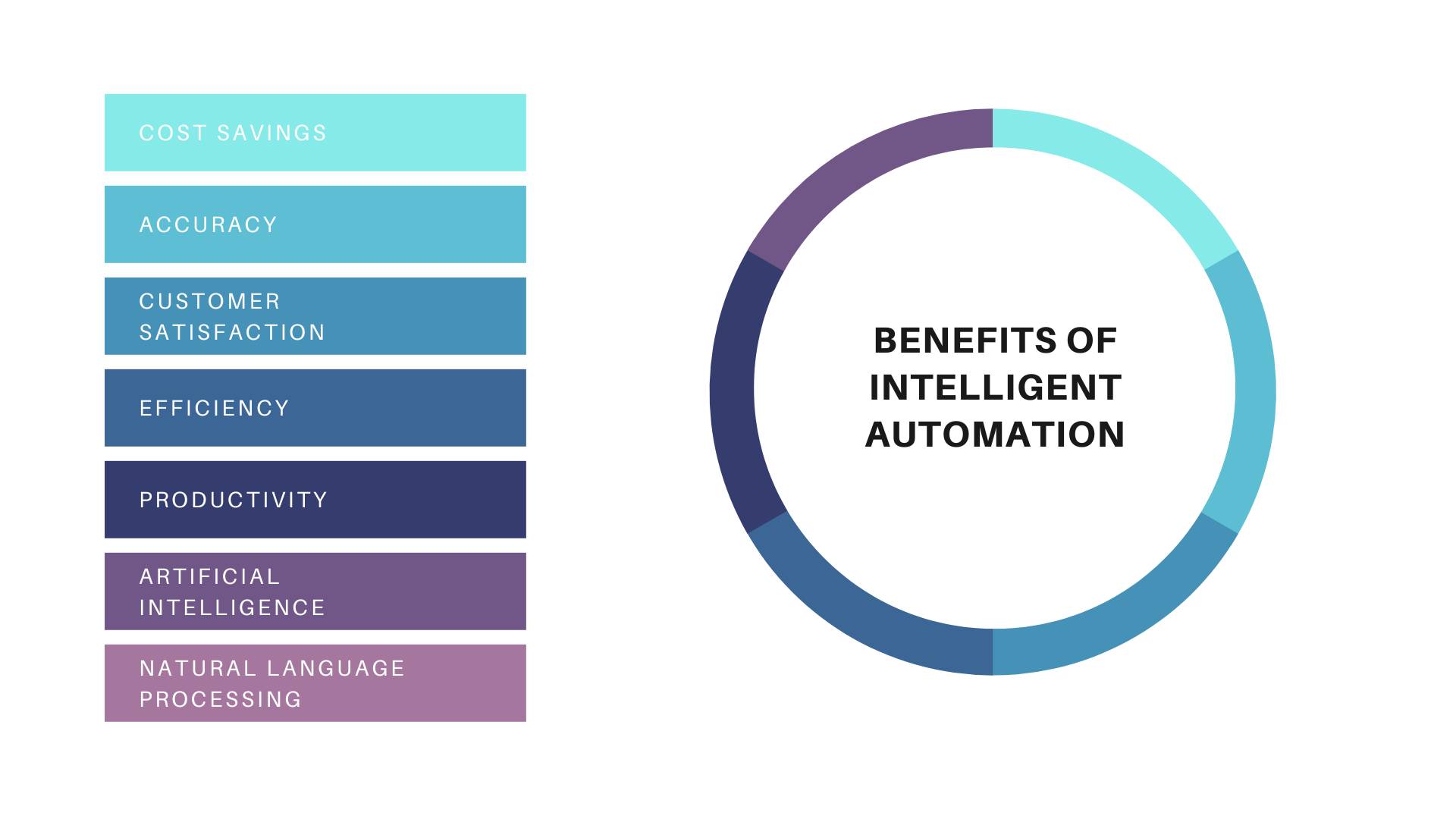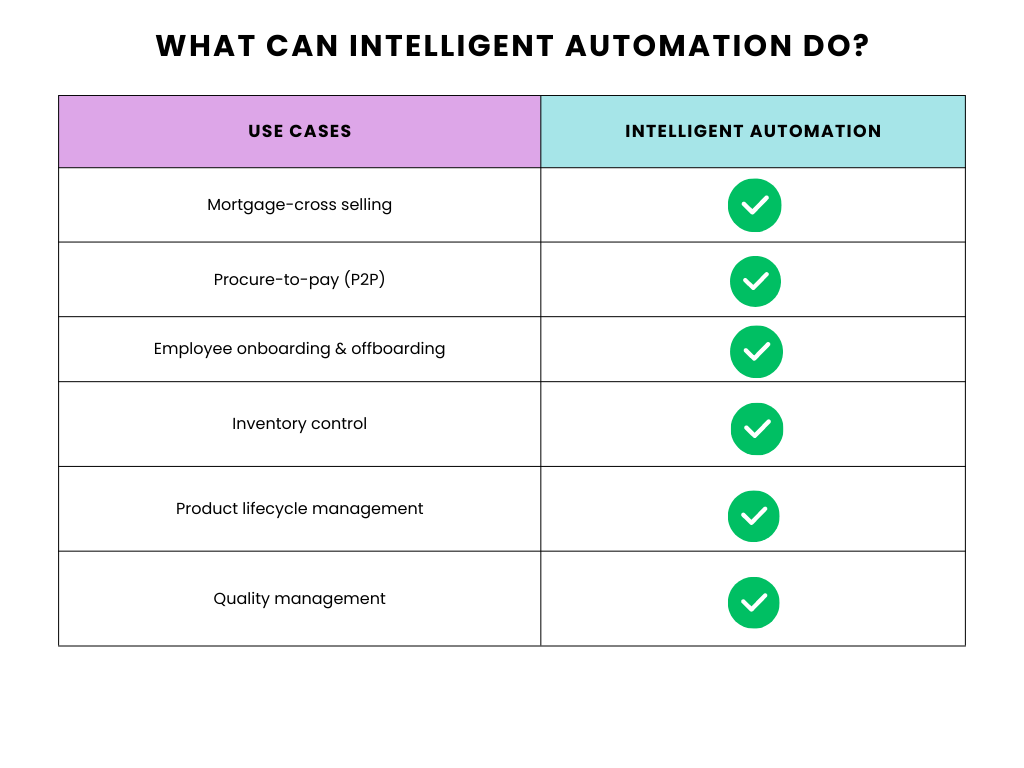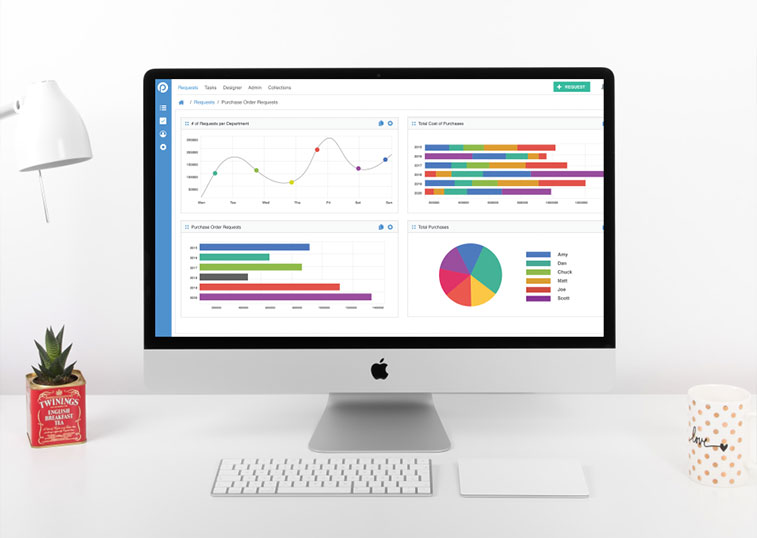4 Intelligent Process Automation Benefits
Ever heard of intelligent process automation (IPA)? It’s a hyper-productive form of workflow automation that leverages artificial intelligence (AI), natural language processing (NLP), and optical character recognition (OCR) for process improvement. But how can that benefit your organization?
What is intelligent process automation?
Intelligent process automation (IPA) has several benefits for process improvement in a variety of organizations. These benefits vary based on the industry. For healthcare organizations, it might mean managing patient care in one system instead of three. For a customer service manager, automation is the routine categorization of support tickets for customer experience.
Regardless of an organization’s opinion on automation, using artificial intelligence can enhance business outcomes and reduce costs. More importantly, IPA makes your job easier. IPA excels when working with time-consuming, repetitive tasks. Instead of working through these tasks manually, IPA covers task management by automating processes.
Benefits of intelligent process automation (IPA)
1. IPA excels with unstructured data
Many organizations start their automation journey with workflows for repetitive and predictable processes. At this level of automation, specific events trigger specific actions, and robotic process automation (RPA) executes these tasks with precision.
But despite RPA’s ability to perform faster than any human could, its prowess falls apart when confronted with the unknown. If a task is unstructured, an RPA system struggles to process it.
Intelligent process automation (IPA) is designed for unstructured content. These systems can extract data from non-traditional sources like text, documents, and images using OCR and intelligent document processing (IDP).
This makes intelligent document processing the perfect alternative to RPA. Any organization that switches from RPA to IDP can significantly extend operational efficiency and agility by augmenting workflows with intelligence.
2. Intelligent process automation adapts from experience
Workflow solutions typically require human intervention to make decisions. However, intelligent process automation is capable of functioning independently and improving over time.
To do so, IPA leverages machine learning algorithms that use pattern recognition—instead of hardcoded rules—to make process decisions.
This contrasts with options that are less intelligent and can only do what someone tells them to do. For example, an appointment scheduling tool without machine learning will likely double-book meetings unless a human intervenes. An intelligent appointment tool won’t double-book if there’s already another meeting scheduled, using existing data.
With real-time analytics and decision automation, IPA can spot patterns, identify anomalies, make accurate judgments, and take appropriate action.
3. IPA improves customer support
Intelligent automation is good at managing changing workflows and can also make operations more efficient and enhance customer satisfaction.
Banks and financial institutions can use IPA to collect data from onboarding documents and input it into their management system.
With this data, businesses can sign up clients quicker and more accurately, leading to happier customers and faster revenue.
This high level of automation is beneficial in healthcare. Workers in healthcare often encounter incomplete medical records and have to perform numerous manual tasks. With IPA, healthcare organizations can automate important processes, including identifying critical conditions with analytics.
By operationalizing information at scale, intelligent process automation creates order and efficiency where there could be chaos.
The efficiency gains from IPA also have a positive impact on employees. With less time spent navigating different systems and manually entering data, bank tellers, healthcare staff, and knowledge workers can cultivate high-value skills that machines can’t tackle.
4. Workflow software reduces costs
Many automation solutions suffer from a lack of situational awareness. This usually shows up as the need for human intervention when something doesn’t work as planned.
A regular workflow system might not accept a new bank customer’s e-form if they don’t finish it. However, an IPA system will use its smarts to identify and self-correct form errors without involving employees.
According to Gartner, the combination of four characteristics makes intelligent business process management software tools successful:
- Data timeliness
- Context granularity
- Predictive power
- Actionability
These sophisticated capabilities enable organizations to dramatically reduce operational costs by radically decreasing employee input. Over time, this leads to increased revenue—how much will depend on the current conditions at your organization.
Let’s say a customer service process involves 10 employees who earn $50K/year, for a total of $500K. If the team performs 250K tasks per year in service of this process, the cost per task is $2. If an IPA solution can perform all the tasks, it saves $375K worth of employee time. You can then utilize this saved time for other purposes.
How does IPA boost Hyper-Productivity?
Intelligent process automation (IPA) can be a game-changer for your organization in more ways than one. One of the most significant ways you can transform your workflow is by boosting Hyper-Productivity. Instead of simply being productive, your team can become Hyper-Productive, completing work faster and more efficiently than ever.
Is your workflow automation system intelligent enough?
In the war of workflow software, intelligent business process management software improves capabilities with artificial intelligence, yielding the highest returns. By delivering adaptable and intelligent process improvement, intelligent workflow automation empowers savvy organizations to improve operations at scale.
Curious about intelligent process automation (IPA) and intelligent document processing (IDP)? Chat with us so we can find the best fit for you.






